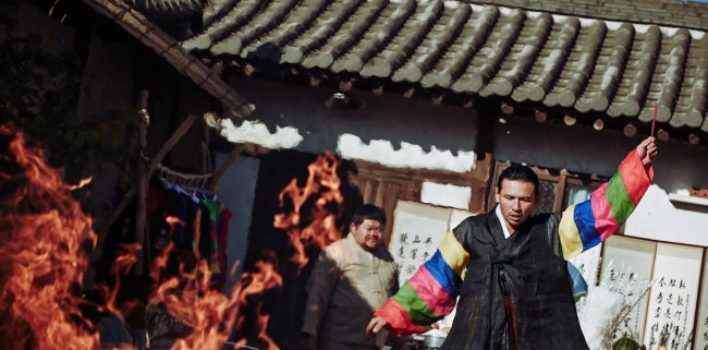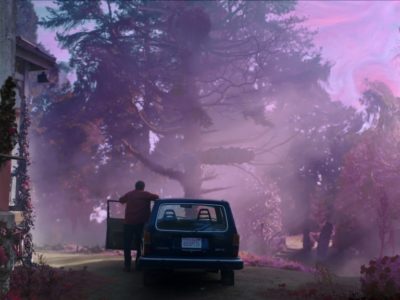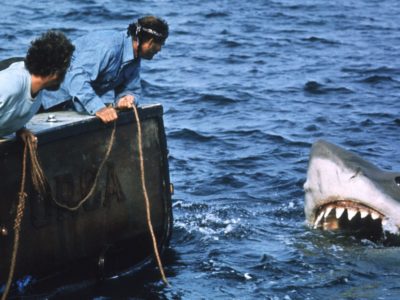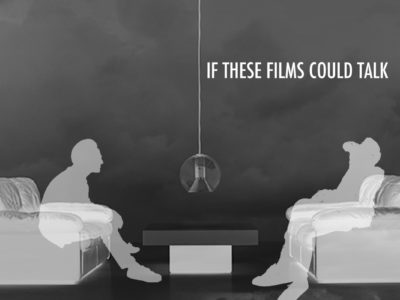Review| The Wailing (2016)
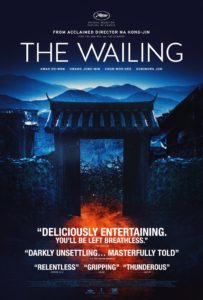 While the festival darling The Witch, the masterfully marketed 10 Cloverfield Lane, and James Wan’s spooky sequel The Conjuring 2 are rightly—in my view, at least—being touted as prime examples of the influx of solid, well-crafted horror films released in 2016, Na Hong-jin’s enigmatic and haunting The Wailing has more or less flown in under the radar; but this South Korean genre-bender is one of the best films of the year, and it’s most certainly worth your time this Halloween Weekend.
While the festival darling The Witch, the masterfully marketed 10 Cloverfield Lane, and James Wan’s spooky sequel The Conjuring 2 are rightly—in my view, at least—being touted as prime examples of the influx of solid, well-crafted horror films released in 2016, Na Hong-jin’s enigmatic and haunting The Wailing has more or less flown in under the radar; but this South Korean genre-bender is one of the best films of the year, and it’s most certainly worth your time this Halloween Weekend.
The Wailing is centered around Jong-Goo, a likable, yet bumbling and inept police officer who sets out to investigate a gruesome murder in his small town. When a number of other townspeople begin acting strange, however, Jong-Goo begins to suspect that the murder was not an isolated incident. Some people begin to place blame for these strange happenings on the sudden arrival of an elusive and mysterious Japanese man who has recently moved into town, and others suggest that toxic mushrooms are to blame. But Jong-Goo, who is increasingly plagued by sinister nightmares, believes something supernatural is at work.
Given that Na Hong-jin’s two other films are crime flicks, it’s no surprise that there are large portions of The Wailing that look, feel, and act like a police procedural. Early on in the film Jong-Goo heads to a crime scene to begin his investigation, but Hong-jin’s camera lingers on a boil-laden man with dim eyes. It’s one of the first sign that The Wailing isn’t interested in playing by the rules of the game. Tension slowly builds over the film’s very brisk-feeling 2.5 hour runtime, and the film very quickly (and forcefully) pushes against genre conventions, resulting in a bizarre and paradoxically cacophonous-yet-harmonious patchwork of possession thriller, crime drama, dark comedy, and a handful of other sub-genres that I can’t say much about without spoiling too much.
As much as any horror film I’ve seen in the past few years, The Wailing 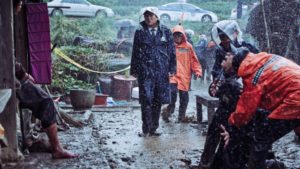 takes great joy in encouraging a multiplicity of interpretations and leaning into the inscrutability of its narrative events. And while the film ostensibly wears its religious and supernatural motifs on its sleeve, a closer viewing—or perhaps a second or third viewing—renders overly simplistic readings untenable or highly problematic. Sure, it seems fairly obvious that one of the characters becomes possessed by a demonic spirit, but Hong-jin’s smart and playful POV shots work to contest the most obvious interpretation. The frequent and unpredictable dream sequences also push The Wailing into the realm of shadow, where it’s difficult to determine what is real and what is imagined. Additionally, the film explores issues of racism and xenophobia that are incredibly relevant to the current American political climate, and it is this subtext that opens up one the film’s more terrifying interpretations—that we have dammed ourselves through our lack of care and compassion for the least of these.
takes great joy in encouraging a multiplicity of interpretations and leaning into the inscrutability of its narrative events. And while the film ostensibly wears its religious and supernatural motifs on its sleeve, a closer viewing—or perhaps a second or third viewing—renders overly simplistic readings untenable or highly problematic. Sure, it seems fairly obvious that one of the characters becomes possessed by a demonic spirit, but Hong-jin’s smart and playful POV shots work to contest the most obvious interpretation. The frequent and unpredictable dream sequences also push The Wailing into the realm of shadow, where it’s difficult to determine what is real and what is imagined. Additionally, the film explores issues of racism and xenophobia that are incredibly relevant to the current American political climate, and it is this subtext that opens up one the film’s more terrifying interpretations—that we have dammed ourselves through our lack of care and compassion for the least of these.
The Wailing robbed me of several days of sleep—and not because it’s an out-and-out scary film. You’ll find very few of the jump scares on which mainstream horror thrives, and the films genre-hopping elicits such fasciation that the last thing you’ll want to do is shut your eyes. So it’s not that The Wailing is scary as much as it is deeply haunting and unsettling on a deep and primal level, and that is what will keep you up at night.


